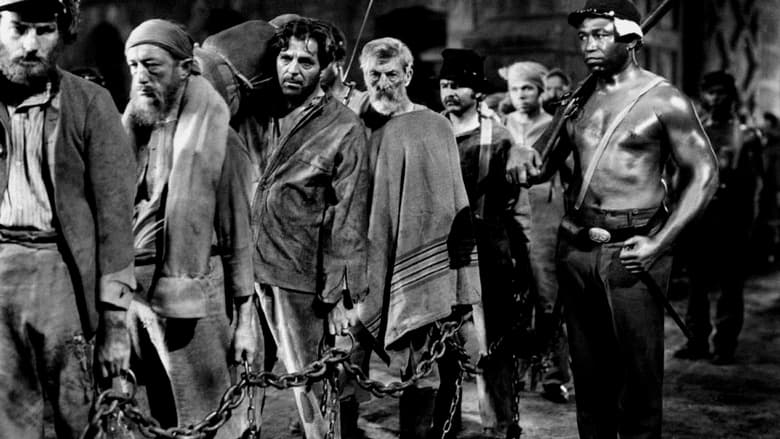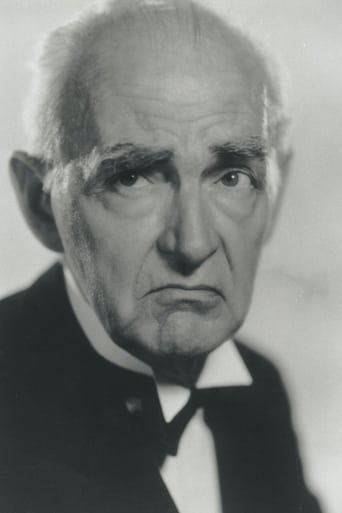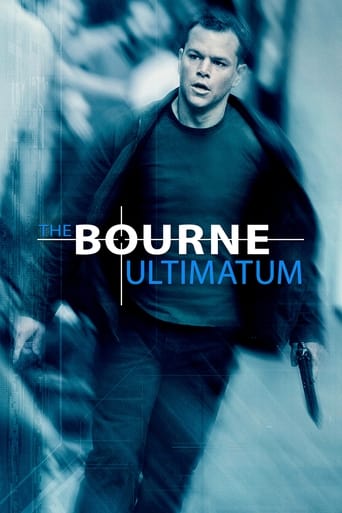

The Prisoner of Shark Island (1936)
After healing the leg of the murderer John Wilkes Booth, responsible for the assassination of President Abraham Lincoln, perpetrated on April 14, 1865, during a performance at Ford's Theatre in Washington; Dr. Samuel A. Mudd, considered part of the atrocious conspiracy, is sentenced to life imprisonment and sent to the sinister Shark Island Prison.
Watch Trailer
Cast
Similar titles



Reviews
Tells a fascinating and unsettling true story, and does so well, without pretending to have all the answers.
Story: It's very simple but honestly that is fine.
An old-fashioned movie made with new-fashioned finesse.
By the time the dramatic fireworks start popping off, each one feels earned.
This moving story does have some actuality. One of the interesting details is some legal argument about the place of residence of doctor Mudd. The lawyers argue that if he could be transported from Shark Island, the prison on Dry Tortugas, to a place where normal US legislation is applied, then a writ of habeas corpus could be served and he would go free. Therefore Mudd's supporters launch a failed rescue attempt to that effect. On Dry Tortugas, an island off the Floridy Keys, the prisoner has no chance to appeal for territorial reasons. In my understanding (I am no lawyer, however) this pretty much reflects the Guantanamo situation of today and one just hopes that no doctor Mudds are holed up there and that all open legal questions in that context can be resolved satisfactorily.I am always amazed how outspoken movies of the great Hollywood Studios could be on political issues or social or legal injustice. This movie is an important product of this tradition. The Prisoner of Shark Island is almost an Anti Yankee-movie. The soldiers are uncouth and brutal, the carpet baggers sleazy double talkers. The authorities panic after President Lincoln's assassination. Somebody, anybody has to hang for the crime. And fast. One of the memorable moments of the movie has one of the military judges in charge say something like we owe it to the people", clearly meaning the enraged mob in the square below. Thinking of who else claimed to fulfill the wishes of the people" around 1936 this could also be an appeal to legal authorities to serve the written law and not give in to those who shout the loudest.Director John Ford certainly knew how to stir up emotions, some of the pathos might be regarded as slightly overwrought by contemporary viewers. However, The Prisoner of Shark Island certainly is one of the most beautiful and memorable movies of his.
This film, coming out at a time when the nation as a whole and Hollywood in particular tended to be sympathetic toward the South, presents a one-sided account of the events surrounding the Lincoln assassination of 1865. This was due to some extend by the visual impressions created by D. W. Griffith of Kentucky, especially his seminal "The Birth of a Nation" which made heroes out of the clandestine hate organization, the KKK. From a political standpoint, the South had become important as a result of many powerful congressmen and senators being from that region which by now had become the stronghold of the Democratic Party, "The Solid South." Pecuniary matters are usually the deciding factor for Hollywood, and there existed a large ticket-buying public in that part of our nation. The Civil War became The War Between the States or the War of Northern Aggression. The volatile issue of slavery was replaced with the states rights rationalization, forgetting that South Carolina and the other ten Confederate slave states withdrew from the Union so their right to own chattel would not be bothered. The right to own slaves became one of the main planks in the Confederate Constitution."The Prisoner of Shark Island" presents the Southern view of history. It also conveniently omits the incriminating evidence against Dr. Mudd, that he knew Booth well. In fact, he was the one who had introduced Booth to a leading conspirator, John Surratt. After setting Booth's leg, Booth did not leave the Mudd house but stayed the night and was ably assisted by Dr. Mudd. Evidence indicates that Mudd knew much more than he ever admitted about Booth and the assassination conspiracy. The murder of Lincoln occurred in the federal district of Washington, D.C., not in a state, hence the reason for the military tribunal. Needless to say, the conduct of the trial would have been much different had it been a civilian rather than a military one. The fact that the one who pulled the trigger, Booth, was killed before coming to trial also muddied the water.The part of "The Prisoner of Shark Island" that sticks with history best is Dr. Mudd's heroic efforts to combat disease at the prison. This justifiably led to his pardon by President Andrew Johnson.The acting, direction, and cinematography are first rate. Written by a Southerner, Nunnally Johnson, the historical facts are a bit skewed but otherwise the script is a good one. If the viewer keeps an open mind, this is a very entertaining picture.
It has been a long time since I have seen this movie, but it was very enjoyable and moving. I am not familiar with the facts of Dr. Mudd's life sentence after he was imprisoned, but he was not a victim of circumstance. According to the novel I am reading regarding the escape of John Wilkes Booth, Dr. Mudd was an acquaintance of John Wilkes Booth prior to the assassination and had at one time agreed to aid Booth in escaping with Lincoln after kidnapping him, a plot that fell through a year before the assassination occurred. With his leg broken, Booth sought out Dr. Mudd as he was a Southern sympathizer, an acquaintance, and a doctor. He fed Booth, let him sleep in his house, and lied to the soldiers hunting Booth as to aid him in his escape from justice, all with full knowledge of his deeds. Sadly, this is not what is seen in the movie, but much like most of history has been distorted to make people feel guilty about someone with supposedly good intentions. Still, an enjoyable movie with a good heart, even if it is not based in fact.
Mmm just saw this and noticed that there's an eerie correspondence between John Ford's slightly dated, but still superior, The Prisoner of Shark Island and some events today. Those unfortunates accused of Lincoln's murder are given a show trial (in which the judges are briefed to avoid such annoying legal niceties as considerations of guilt being 'beyond reasonable doubt'), as they shuffle, chained, hooded, and without rights, from hearing to internment and back again. Railroaded on the back of belligerent public opinion after an outrage that shocked a nation, guilty by association in the hasty eyes of the establishment, Dr Mudd is denied true process of law in the special military court hearings and ends banged up on the far edge of the States, just outside of the place where the presentation of a Habaeus Corpus would, we are told, ensure a fair reassessment of his case.. Ford couldn't have known of course, but as a study of a controversial case from the past his film is somewhat prescient of the Guantanomo Bay shame, a current and larger stain over the face of American justice









